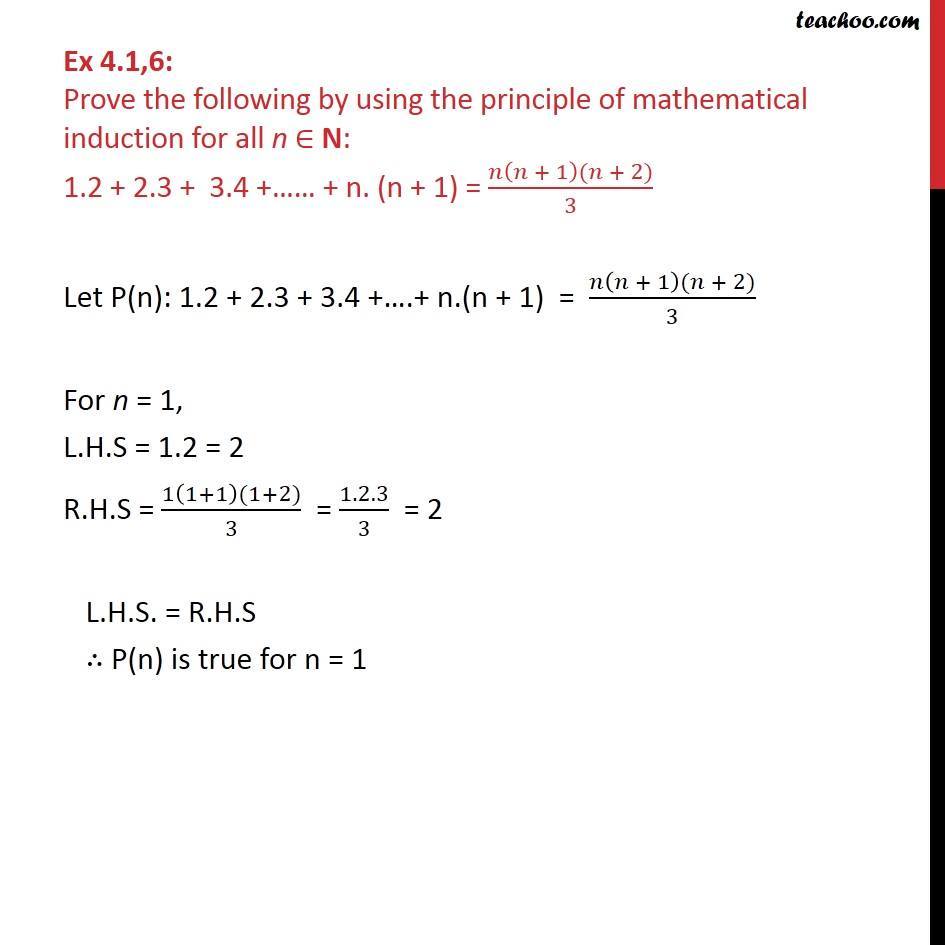1 Answer Base case For n = 5, we have 25 = 32 > = 4(5) Inductive hypothesis Suppose that 2k > 4k for some integer k ≥ 5 Induction step We wish to show that 2k1 > 4(k 1) Indeed, We have supposed true for k and shown true for k 1 Thus, by induction, 2n > 4n for all integers nProve that 3 n > n 2 for n = 1, n = 2 and use the mathematical induction to prove that 3 n > n 2 for n a positive integer greater than 2 Solution to Problem 5 Statement P (n) is defined by 3 n > n 2 STEP 1 We first show that p (1) is true Let n = 1 and calculate 3 1 and 1 2 and compare them 3 1 = 3 1 2 = 1 3 is greater than 1 and hence p (17n2n is divisible by 5 Proof By induction Induction basis Since 72=5, the theorem holds for n=1 17 Divisibility Inductive step Suppose that 7n2n is divisible by 5 Our goal is to show that this implies that 7n12n1 is divisible by 5 We note that

Ex 4 1 6 1 2 2 3 3 4 N N 1 N N 1 N 2 3
N^2-n+41 is prime by mathematical induction





